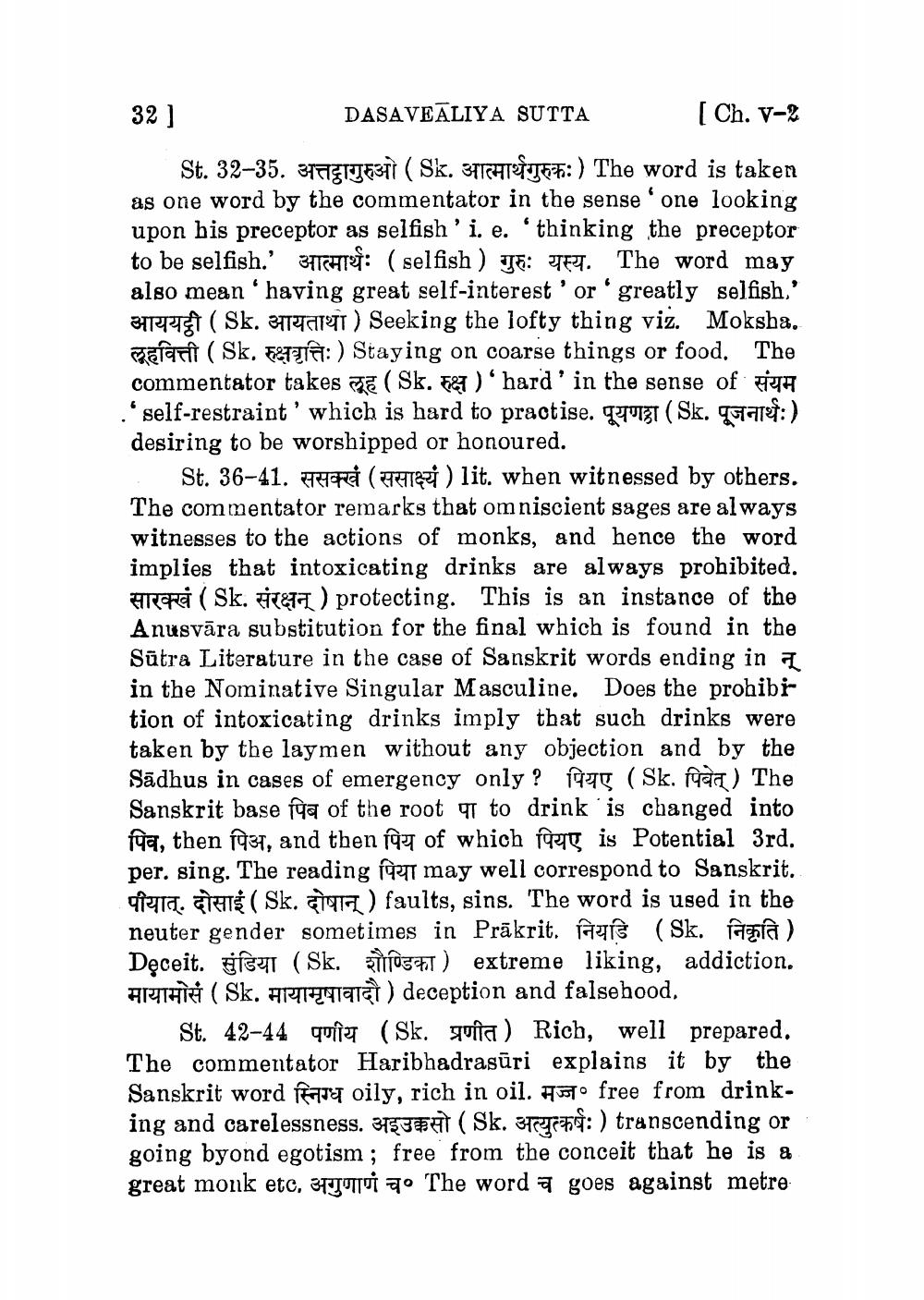________________
32]
DASAVEALIYA SUTTA
[Ch. V-2
•
St. 32-35. अत्तट्ठागुरुओ ( Sk. आत्मार्थगुरुकः ) The word is taken as one word by the commentator in the sense 'one looking upon his preceptor as selfish' i. e. 'thinking the preceptor to be selfish.' आत्मार्थ : ( selfish ) गुरु : यस्य. The word may also mean having great self-interest' or 'greatly selfish.' आयट्ठी ( Sk. आयताथा ) Seeking the lofty thing viz. Moksha. लहवित्ती ( Sk. रुक्षवृत्तिः ) Staying on coarse things or food. The commentator takes लूह ( Sk. रुक्ष ) ' hard' in the sense of संयम .* self-restraint' which is hard to practise. (Sk. aref:) desiring to be worshipped or honoured.
St. 36-41. (a) lit. when witnessed by others. The commentator remarks that omniscient sages are always witnesses to the actions of monks, and hence the word implies that intoxicating drinks are always prohibited. सारखं ( Sk. संरक्षन् ) protecting. This is an instance of the Anusvara substitution for the final which is found in the Sūtra Literature in the case of Sanskrit words ending in in the Nominative Singular Masculine. Does the prohibition of intoxicating drinks imply that such drinks were taken by the laymen without any objection and by the Sādhus in cases of emergency only ? पियए ( Sk. पिबेत् ) The Sanskrit base fa of the root to drink is changed into पिव, then पिअ, and then पिय of which पियए is Potential 3rd . per. sing. The reading f may well correspond to Sanskrit. पीयात्. दोसाईं ( Sk. दोषान् ) faults, sins. The word is used in the neuter gender sometimes in Prākrit. नियडि ( ( Sk. निकृति ) Deceit. (Sk.) extreme liking, addiction. मायामोi (Sk. मायामृषावादौ) deception and falsehood,
St. 42-44 qui (Sk. a) Rich, well prepared. The commentator Haribhadrasuri explains it by the Sanskrit word f oily, rich in oil. Ho free from drinking and carelessness. अइउक्कसो ( Sk. अत्युत्कर्ष: ) transcending or going byond egotism; free from the conceit that he is a great monk etc, The word goes against metre




